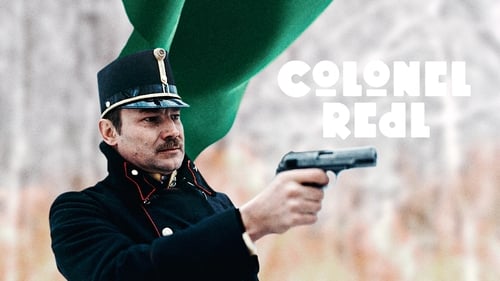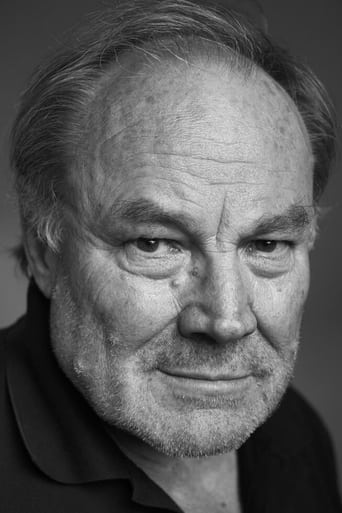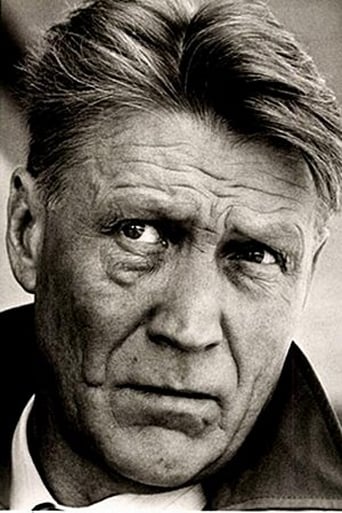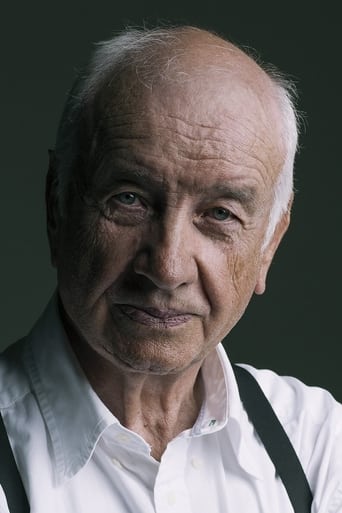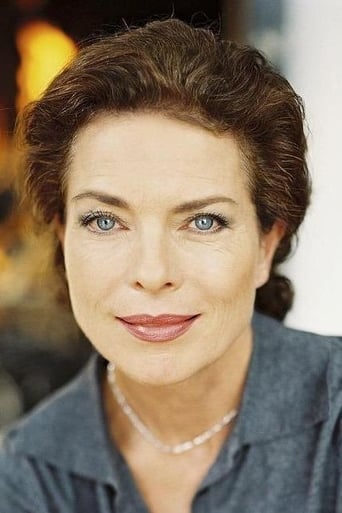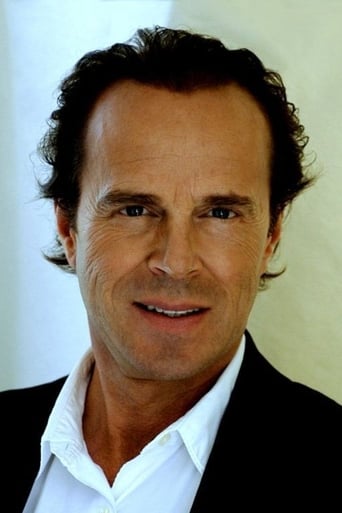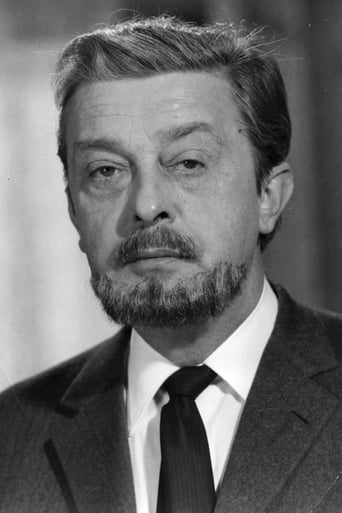Vashirdfel
Simply A Masterpiece
RipDelight
This is a tender, generous movie that likes its characters and presents them as real people, full of flaws and strengths.
TrueHello
Fun premise, good actors, bad writing. This film seemed to have potential at the beginning but it quickly devolves into a trite action film. Ultimately it's very boring.
Voxitype
Good films always raise compelling questions, whether the format is fiction or documentary fact.
petarmatic
I really enjoyed this film! They are so fantastic in describing how Austria-Hungary went from high to low in a short period of time. As a matter of fact when I move around territories which used to be part of Austria-Hungary that country was more successful country then are the countries that exist on its territory save may be Austria today.The plot is great, shots of fantastic vistas of the former Empire and acting is excellent, especially EMB.If you are history student of Austria-Hungary period this is a definitely film for you.If you are from Austria or Hungary or other countries that inherited territories of the former Monarchy, you have to see this film, it is a part of your history.
marissas75
"Colonel Redl" is based on a famous scandal that took place in the last years of the Austro-Hungarian empire, and its greatest strength is in how it evokes the masculine militarism of the era. It follows the life of Alfred Redl (Klaus Maria Brandauer), who rose from humble origins to become a spymaster for Crown Prince Franz Ferdinand, but struggled to repress his homosexuality and eventually betrayed his country.The movie makes Redl less treasonous than he seems to have been in reality, and Brandauer's performance keeps him sympathetic, too. We see how Redl's extreme loyalty to the army destroys his humanity and fills him with self-loathing; thus, when he finally stops lying to himself, it comes as a relief (even though this now means that he is lying to everybody else)."Colonel Redl" is probably too long (2 hours 20 minutes) for the story it wants to tell, and yet it still sometimes glosses over its characters' motivations. For instance, Redl claims he has no interest in marrying, then the very next scene depicts his wedding; and his wife never gets sufficiently characterized. Sometimes the scene transitions are subtly clever; other times they are abrupt and choppy."Colonel Redl" is thus neither accurate history nor fully engaging drama, but it is a good portrait of the declining Austro-Hungarian empire. It shows many of the factors that led to World War I: pervasive ethnic tensions, the belief that war was necessary and proper, and a military command more concerned with preserving archaic ideals than with investigating actual, pressing threats. In the end, they paid for this, when discontented Serbians assassinated Franz Ferdinand and started World War I--the war that caused the world of "Colonel Redl" to disappear for good.
faraaj-1
I believe Colonel Redl to be Istvan Szabo's best film, a few degrees better than his more celebrated collaboration with the great Brandauer, Mephisto. Redl is in fact the middle part of a trilogy made by Hungarian director Szabo and starring Klaus Maria Brandauer in the title roles. Colonel Redl is a revisionist view of the events surrounding the downfall and eventual suicide of Austro-Hungarian counter-intelligence chief Colonel Redl during the early months of WW-I.Redl was of mixed Ukrainian-Hungarian stock but rose impressively through the ranks of the Austro-Hungarian despite his Jewish ancestry and non-aristocratic background. Redl revolutionized Austro-Hungarian espionage and was eventually succeeded by his subordinate Maximilian Ronge. Shortly thereafter, in a spy operation worthy of a Hitchcock film, Redl was found to have been secretly spying for the Russians and had given them considerable information on Russian spies, and more damagingly, the plans for the disastrous attack on Serbia. He committed suicide shortly shortly thereafter and it was revealed that he was a homosexual who was being blackmailed by the Russians.Szabo's film has a revisionist view on the entire affair and its a film steeped in the politics of the Austro-Hungarian empire. Redl comes out as perhaps the most patriotic man left in the Empire who had to be a fall guy to set an example for the army. His homosexuality, while broached, is not the central theme of the film. The first and most noticeable thing about the film is the superb use of locations. A lot of time seems to have been invested in sourcing the best locations and the authenticity of period detail makes this an instant classic.Then there is Brandauer's performance as Redl. His Redl is similar to Mephisto in his blind ambition and loyalty to self. But there is a great change in the acting. Where in Mephisto he was pure energy and physicality, here he is a restrained Army officer and acts the part perfectly. Brandauer is one of the most talented actors of the twentieth century - the German Olivier - and the DVD extra has an interview with him that is very interesting. His view is that acting on stage requires a lot of ability and understanding. However, a person from any background can act in film because it requires no skill and isn't challenging. That is why he avoids working in films. Only an actor with his obvious ability could have the nerve to say such a thing!Szabo has obvious strengths in extracting brilliant performances from all actors. He is also very good at handling epic, historic subjects in an intelligent manner, concentrating on the period and political themes rather than cheap spectacle. What I found to be his weakness in this film and Mephisto are a poor background score. The music just doesn't blend well with the action. Also, his narrative is typically choppy and the editing is poor as always. Without these weaknesses, I would certainly have rated Redl 10 out of 10.NB: There is an autobiographical scene from Szabo's youth towards the beginning of Redl where he saves his own and his best friends skin by informing on fellow cadets. On 26 Jan 2006, the Hungarian weekly 'Life and Literature' revealed that Szabo has worked as an informant of the Communist authorities after the 1956 Hungarian uprising and made reports on classmates in University.
Guy_T
Brandauer again shows why reviews of his work often include the word 'magnetic' - You just don't take your eyes off him. His range is remarkable, his control of the minutest gesture superb, the subtlety of his physical screen presence majestic.Szabo's direction is again precise but not heavy handed. If this doesn't have quite the sweep or sting in the tail of their previous collaboration, Mephisto, it is still one of the finest European films of its time.The story is superbly crafted; to leave Muller-Stahl's Archduke Franz Ferdinand out until the last hour or so is an outstanding narrative technique, and if Muller-Stahl's performance is a trifle one-note, that's as much due to narrative constraint as actor ability - he's still pretty effective, and its one of his best roles.Szabo has an ability to investigate history in a curiously personal and touching sense of the individual, but leaving that individual dispassionately, and gazing at him objectively; thus what comes across is a really detailed and involving character struggling against an incredible force of inevitability. Like Visconti, broad strokes, but painted in the minutest of details - only unlike Visconti, full blooded and direct.It's at times witty, literate and touching, but always beautiful.
